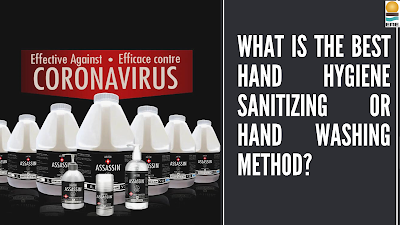According to the Centers for Disease Control and Prevention (CDC), “when soap and water are not readily available, use a hand sanitizer that contains at least 60% alcohol." The Food and Drug Administration (FDA) approved a liquid hand sanitizer that includes 70% alcohol and claims to kill 99.9% of germs and bacteria.
Any hand sanitizer that does not satisfy the 60 percent requirement, as well as anything containing methanol and 1-propanol, should be avoided. Each of these substances is extremely dangerous and should be avoided at all costs. Also keep in mind any sanitizers that use benzalkonium chloride instead of alcohol, which has been shown to be less effective at killing viruses and germs.
You've become accustomed to all the other guys' hand sanitizers that you either pour or pump globs onto your hand that either sloppily run off to the side or entirely shoot out in the incorrect direction, coating an undesired region with your sanitizer instead. Not only that, but due to excessive pouring, certain travel sizes run out soon.
The strong stench of hand sanitizer or the sticky sensation your brand left on your skin can sometimes stop you from cleaning your hands. Janitori’s Eco-Friendly Hand Sanitizer offers many benefits such as it contains ethanol, water, alkyl acrylate crosspolymer, glycerine, triethanolamine, aloe vera & fragrance. This will help your skin to be refreshed and smooth.
Janitori offers a liquid hand sanitizer spray bottle that’s easier to rub and apply to hands and surfaces. Lastly, our hand sanitizer features a fresh breeze scent that dries instantly and leaves hands feeling soft and clean.
Whether you should wash your hands or sanitize
Difference Between Hand Sanitizing and Hand Washing
Handwashing
Hand Sanitizing
When soap and water aren't accessible, hand sanitizer is a good approach to keep germs at bay. It's crucial to remember, though, that hand sanitizer doesn't kill everything. If anything, hand sanitizer should be used as frequently as possible in conjunction with hand washing.
Hand sanitizer's effectiveness is due to the combination of chemicals. A mixture of alcohol (ethanol or ethyl alcohol), isopropyl alcohol, and/or benzalkonium chloride is found in most cases. These active components are antiseptics that effectively kill most bacteria.

Comments
Post a Comment